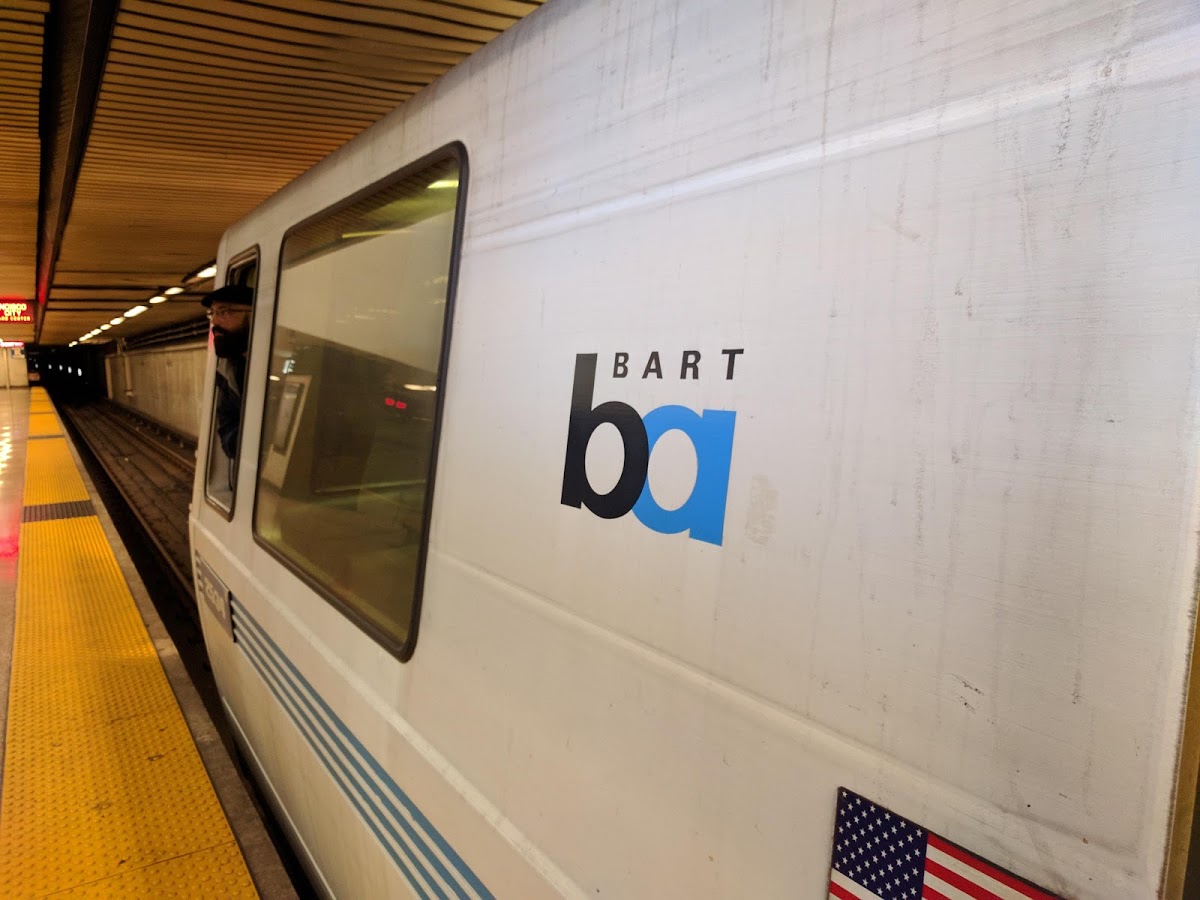The Oakland Bay Bridge and the freeways that connect to it are now lightly used after 9 p.m., so, to save money on police patrols, maintenance, etc, the city is shutting down the bridge and the adjoining freeways in the evenings as an emergency, budget-saving measure.
This is, of course, not true--and it's hardly imaginable.
There may be a reason to do it at some point to slow the spread of COVID-19, but beyond that, such a move would rightly be seen as preposterous and enormously damaging. So why is the equivalent acceptable when it comes to BART, which started closing at 9 p.m. this week as an emergency budgetary measure?
"Public transit provides a really important lifeline service and needs to keep functioning both during and after the crisis," wrote SPUR Transportation Policy Director Arielle Fleisher, in an email to Streetsblog. "The COVID-19 pandemic is highlighting just how fragile funding for transit is."
As Streetsblog readers are no doubt aware, 70 percent of BART funding comes from fares, one of the highest fare-box recovery ratios in the U.S. With shelter-in-place orders effective throughout the Bay Area, ridership--and the revenue that comes with it--has cratered. According to a statement from BART, "...a sustained ridership loss of 90 percent and a 50 percent reduction of economic activity impacting other revenue sources could reduce BART's monthly revenues by approximately $60 million."
But BART is also the way that many firefighters, workers at other transit agencies, food-service providers, healthcare providers, and other essential workers get around. Cutting them off at 9 p.m. seems like a sure way to handicap the whole region. "Transit is crucial to an equitable and livable region and to meeting our climate goals," wrote Livable City's Tom Radulovich. "The region’s transit funding hodgepodge and uncoordinated services could come unglued in coming months, leaving lots more folks without basic mobility."
TransForm's Hayley Currier, in fact, told Streetsblog that BART should be seen as a direct extension of the healthcare system, since it's so important to how many healthcare workers--and patients--get around.
I can’t even begin to tell you how difficult this is that BART is cutting service. So first, the facts:
— Janice Li 李正元 (@JaniceForBART) March 20, 2020
- Starting on Mon 3/23, Mon-Fri service will be from 5am-9pm
- Starting in Sat 3/28, Sat/Sun service will be from 8am-9pm
- Current train frequency will remain https://t.co/kpVKqVuQdn
Ian Griffiths, Co-Founder & Director, Seamless Bay Area, told Streetsblog that having a high fare-box recovery isn't the problem--in fact, that's fundamentally a good thing. "Effective transit systems all over the world get a lot of their revenue from fares. But there needs to be a contingency plan to access funding for situations exactly like this--which BART, and so many transit agencies, don't seem to have access to," he wrote in an email to Streetsblog. "BART and other public transit are essential services - and we shouldn't be faced with the prospect of major cuts to service if the state or federal government doesn't step in with a 'bailout' package."
"We need to be prepared for fluctuations in transit use," added SPUR's Fleisher. "Pandemics, but also fires or bad storms or even more benign changes like significant shifts to telecommuting will have a major impact on transit's bottom line. This absolutely means thinking more strategically and creatively about how we fund transit. Can we set transit up so that it emerges from this crisis stronger than ever?"
Indeed, Currier objects to calling emergency funds for transit a "bailout" in the first place. "You don't 'bailout' essential services, you fund them," she told Streetsblog.
"It's curious that some policymakers still consider transit as an enterprise, while other government services like roads, primary and secondary education, parks, public safety, and so on, are considered social goods to be provided universally and free of charge," said Radulovich. "Public transit ought to be considered a basic urban public good, and the Bay Area ought to do more to stabilize funding for lifeline transit services."
As BART director Janice Li points out in her tweet above, the agency is trying its best to respond to an unprecedented and rapidly changing crisis. Their motivation is to keep service alive and sustainable. But they shouldn't have to make such a Hobson's choice in the first place.
Meanwhile, BART, as our sister publication Streetsblog NYC reports, is part of a coalition seeking emergency funding from Washington to continue operation and, one hopes, resume normal hours soon. For more reading on reforming how transit is funded, check out this VICE feature.





